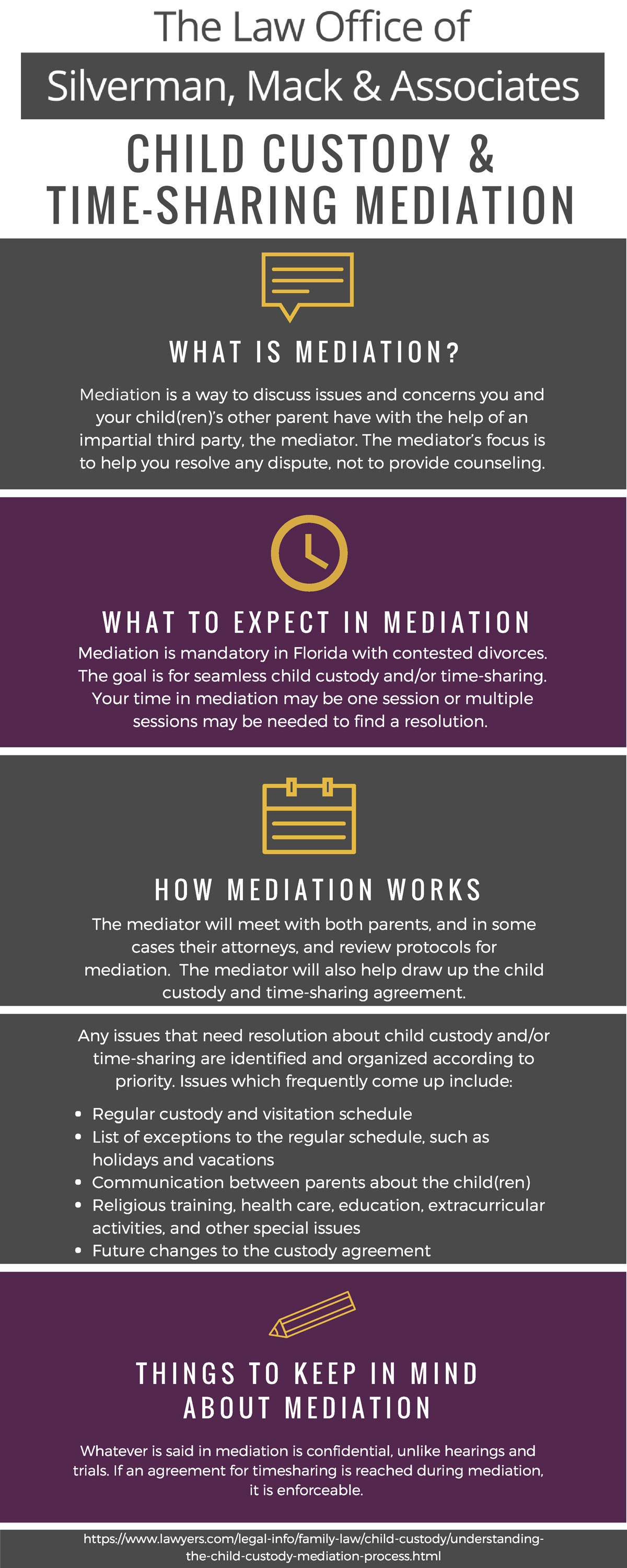In many divorce cases, parents are able to communicate and cooperate with each other to develop an effective parenting system. Both parents have responsibilities and access to the child. However, in cases in which parents have bitter or hostile relations with each other, parenting plans can be tricky. It may be difficult for parents to reach an agreeable solution. Who will afford which expenses? Who will transport the child to school and other daily activities?
Florida law recognizes that parents are often unable to solve these complicated issues on their own. Thus, there are guidelines and special considerations pertaining to time sharing, child custody, and visitation that make parenting plans between separated parents possible. Schedule a consultation with an experienced family law attorney at Silverman and Mack, LLC to discuss your time-sharing and child custody case.
How Is Time-Sharing Determined?
A time-sharing arrangement is a type of parenting plan that allows split, unmarried and/or divorced parents to divide time spent with their child or children. The arrangement is presented must be approved by a judge in a family court. Depending on the type of case and thorough examination of the parents, a court may issue time-sharing policies to the parents. Parenting plans for separated or divorced parents can become stressful, frustrating, and even disastrous. While 50/50 parenting plans are desirable, certain circumstances within a family can void the possibility for equal time-sharing arrangements.
In most cases, a court may designate specific timeframes and days for time sharing. Holidays and school breaks may alternate from year to year. Once a time-sharing schedule is definitive, both parents are expected to be punctual and to avoid disruption of the other parent’s time with the child. Parents are required to notify each other 24 hours in advance if there is a need to keep the child for a longer or shorter time than specified. If there is an emergency, parents should notify one another as soon as possible. Time-sharing modifications require court approval, in which the reasons for requested modification will be considered.
How Is Visitation Determined?
Visitation schedules should be arranged with the parents and approved by a judge — or another hearing officer. Child visitation rights require both parents to have positive relations with each other. If a parent’s visitation time is interfered with, a court can order fines to the parent responsible for the interference, order mandatory community service or order a change in the visitation plan altogether. Contact us to speak with a Gainesville attorney about your visitation schedule.
How Is Child Custody Determined?
When determining which parent will have child custody — the primary custodian with which the child will live for the majority of his or her childhood — courts consider a number of factors, including the health, safety, and emotional and developmental needs of the child as well as the moral character of the parent.
Moral Character
The last important factor that a court may consider when determining child custody is the moral character of each parent. To serve the best interest of the child, parents should be able to demonstrate that they are upstanding, law-abiding citizens. Parents who, for example, engage in illegal drug usage or extreme profanity around their child may be perceived as unfit.
The Child's Needs
In determining which parent will have custody, courts consider the abilities of each of the parents to meet the emotional and developmental needs of the child. The parent that is able to be actively involved and engaged with the child, create a disciplined schedule, and offer an overall stable environment is usually the parent who is granted custody.
Health & Safety
The health and safety of a child are considered to be a top priority in Florida family courts. If there is evidence of substance abuse, mental instability, domestic violence, child abuse, abandonment, or neglect within a given household, courts may be unwilling to provide custody to one or both parents. In fact, one or both parents who meet these qualifications may lose their parenting privileges.

